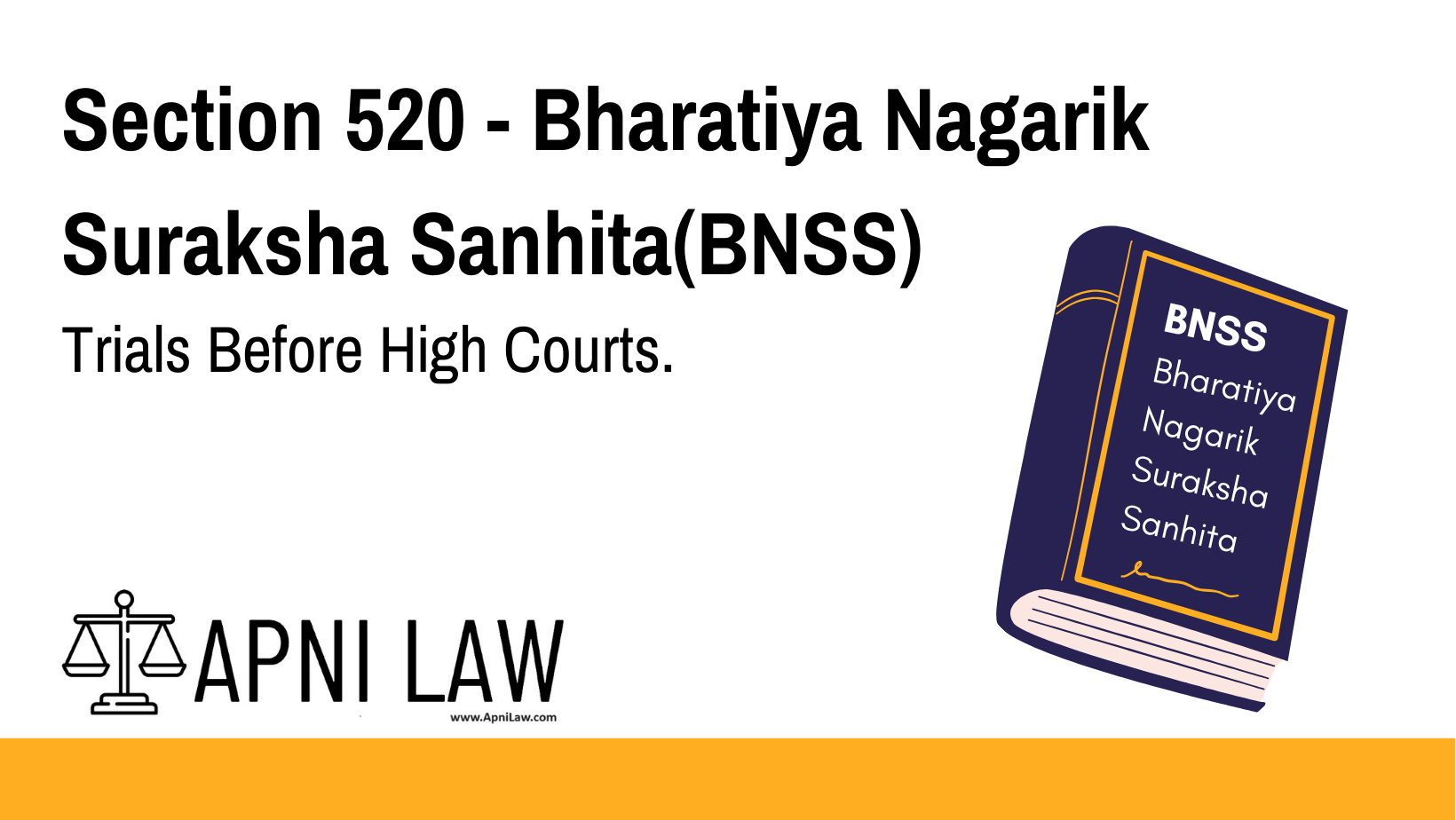Code: Section 520 BNSS
When an offence is tried by the High Court otherwise than under section 447, it
shall, in the trial of the offence, observe the same procedure as a Court of Sessions would
observe if it were trying the case.
Explanation of Section 520 BNSS
Section 520 of the Bharatiya Nagarik Suraksha Sanhita (BNSS) specifies that when the High Court tries an offence, except in the specific case under Section 447 BNSS, it must follow the same trial procedure as a Court of Sessions. This ensures consistency and fairness in handling criminal cases at the High Court level.
Key Aspects of Section 520 BNSS:
- Applicability of Procedures: When the High Court is responsible for the trial of an offence (excluding cases under Section 447 BNSS), it must adhere to the same procedures that are typically followed by a Court of Sessions. This includes the process of handling evidence, conducting hearings, and rendering a judgment.
- Session Court Procedures: The procedures of a Court of Sessions are designed to ensure a comprehensive and fair trial for serious criminal offences. These procedures are now to be applied in the High Court, ensuring uniformity in criminal trials across different levels of the judiciary.
Illustration of Section 520 BNSS in Practice
Example 1: High Court Trial for Serious Offence
A case involving a serious criminal offence, such as murder, is transferred to the High Court for trial. In this case, the High Court will follow the same procedures as a Court of Sessions to hear the case, examine evidence, and pass a judgment, in line with Section 520 BNSS.
Example 2: Applicability of Court of Sessions Procedures
A case is presented before the High Court, and it is not an exception under Section 447 BNSS. In this case, the High Court follows the standard trial procedures of a Court of Sessions, which ensures that the process is thorough and equitable.
Common Questions and Answers About Section 520 BNSS
1. When does Section 520 BNSS apply?
- Answer: Section 520 applies when the High Court is trying a criminal offence, except in the cases specifically mentioned under Section 447 BNSS. In these trials, the High Court must adhere to the procedures followed by a Court of Sessions.
2. How do the procedures of the High Court differ from the Court of Sessions?
- Answer: The main difference lies in the level of the court. The High Court typically handles appeals, while the Court of Sessions handles the initial trial for serious criminal offences. However, in cases under Section 520 BNSS, the High Court must follow the same trial procedures as a Court of Sessions would.
3. What happens in cases under Section 447 BNSS?
- Answer: Section 447 BNSS outlines specific exceptions where the procedures of the High Court may differ. In such cases, the High Court may follow different protocols as described in that section.
Conclusion
Section 520 BNSS is designed to ensure consistency and fairness in the trial process when serious criminal offences are being handled by the High Court. By aligning High Court procedures with those of the Court of Sessions, it guarantees that the trial process remains uniform, transparent, and just for all individuals involved.








